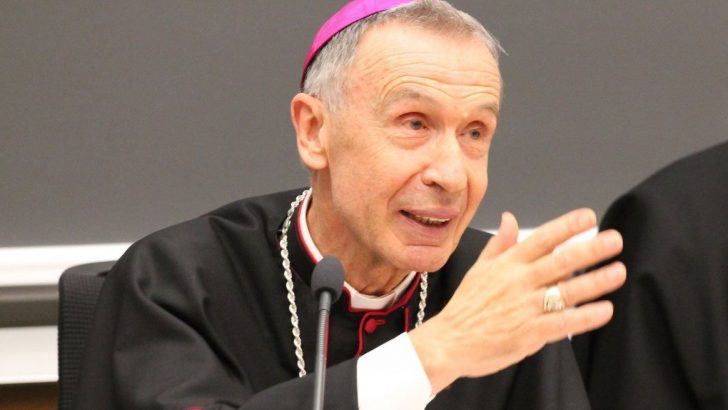Fr Bernard Healy
On Saturday, Pope Francis appointed a man familiar to many Rome-educated Irish clergy, namely Jesuit Archbishop Luis Ladaria Ferrer, as Prefect of the Congregation for the Doctrine of the Faith. From 1984 until 2008 he was on the theology faculty of the Jesuit-run Pontifical Gregorian University in Rome where most of the Irish clerical students in Rome at the time would have done their studies.
Fr Ladaria, as he was known during this period, was one of the university’s most popular teachers. During my own time in Rome (the early 2000s) he taught the compulsory Trinity course to first year theology students, as well as a variety of other courses focusing on the Trinity, man’s relationship with God and those early theologians known as the Fathers of the Church.
The last class of each course taught by Fr Ladaria inevitably drew a standing ovation, something he endured with great embarrassment, being a fundamentally humble man. (This is in contrast to one of his more exuberant colleagues who would do a lap of honour around the lecture hall on the last day of term!)
Theologian
Some students asked him to autograph copies of his books, something I now regret not having done myself. Informed opinion describes him as the finest theologian of his generation on the Gregorian faculty.
Why was he such a popular teacher? He wasn’t an easy examiner, but he was always scrupulously fair and friendly in oral examinations. A successful answer received a warm smile, whilst a student’s failure to explain some point of theology seemed to upset him as much as it did the student. His teaching drew heavily from the writings of the Church Fathers and he always pointed to the beauty and eternal relevance of these early teachers of the Faith. A favourite passage from Scripture or from the writings of St Augustine or St Hilary of Potiers would often be used to introduce the theme of a class, and sometimes this reading would seem to bring him to the verge of tears, so strongly did the power of these texts strike him.
His insistence that theology was always born of prayer and led back to prayer was evident in the way he taught, and his passion for the great thinkers of Christianity was something he delighted in sharing with his students so that they might share that same love with the Church throughout the world.
Describing himself as ‘middle of the road’, commentators have tended to describe Ladaria as a theological conservative. As a student, it was clear that he preferred to bring enlightenment rather than controversy to the table. Certainly his theological approach was appreciated by both St John Paul II and Pope Benedict XVI.
Dialogue
The former appointed him to the International Theological Commission (later making him Secretary General), and as a Consultor to the Congregation for the Doctrine of the Faith. Pope Benedict named him to the No. 2 post in the Congregation for the Doctrine of the Faith with the rank of archbishop 10 years ago, and gave him a leading role in the dialogue with the traditionalist Society of St Pius X.
Ladaria remained in residence in the modest Jesuit community accommodation at the Gregorian University on his appointment to that post in the CDF. There he retained the same reputation he had as a professor – gentle, humble, hard-working, prayerful, dedicated and utterly discreet about his work in the Vatican. I suspect that most of his former students are encouraged that this new appointment by Pope Francis means that Archbishop Ladaria will be bringing his great personal and theological skills to one of the most responsible and demanding offices in the Church.
*Fr Bernard Healy is a priest of the Diocese of Kerry.


 Archbishop Ladaria.
Archbishop Ladaria. 